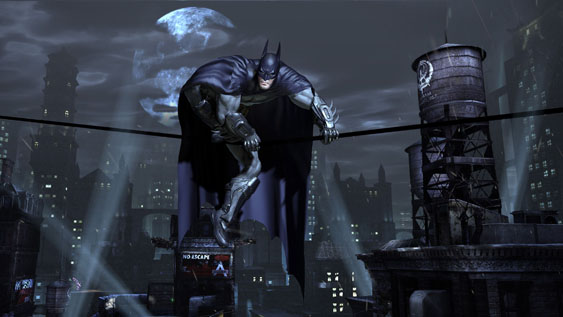This post has not been edited by the GamesBeat staff. Opinions by GamesBeat community writers do not necessarily reflect those of the staff.
Games are growing as an art form. The field overall may not be recognized as such, according to individual definitions, but it’s getting there.
Fortunately, game critique is also growing. It’s beginning to mature and question many of the pillars hobbyist publications stood on in the past: omnipresent advertising, dissected and scored reviews, and emphasis on game length versus experience, among others.

Most gaming press readers aren't just looking for a compendium of codes to feed their Game Genies anymore.
The movement is exciting and uplifting overall, but I object to dismissing game length as one valuable metric of quality.
Wherefore art thou $60?
Let me first say I think game length is an over-examined and often irrelevant aspect, but not always.
Books and movies are not judged by their page counts and run times, and it seems odd that a fellow form of popular entertainment should be held to different standards. Here’s where I’m coming from:
Working with a typically meager college student's budget, I made myself choose only two games to purchase out of this fall’s very bountiful release calendar… Not counting indie games/Steam sales which I can sneak in as a discretionary $10 or $15 here or there—you’ll never take those away from me!

Batman: Arkham City is a game I want, but not the one I need right now. So I'll shun it, because it can take it. Because it's not Uncharted.
I picked Uncharted 3: Drake’s Deception and Saints Row: The Third. This doesn’t mean I won’t panhandle ferociously for, among others, Batman: Arkham City and Deus Ex: Human Revolution from loved ones over the holidays and beyond, but the former two seemed to promise me the most bang for my buck.
I measured this from my previous experiences with the franchises. While I played and enjoyed Batman: Arkham Asylum quite a bit, I was ready to be finished when the credits rolled—after completing about half of its side content. In comparison, I’ve beaten Uncharted 2: Among Thieves’ single player mode three times and spent many hours in its relatively simple multiplayer.
I would not be comfortable saying Uncharted 2 was far and away a better game than Arkham Asylum, but I would be comfortable saying it gave me more to do and more inspiration to do it.

In Saints Row: The Third, civil disobedience knows no species.
The same goes for Deus Ex and Saints Row. While I am more interested in the setting and narrative of the former, the variety of things to do and carnage to inflict in the latter outweigh them, particularly with a co-op-ready campaign—I played through all of Saints Row 2 with a friend over the summer, and it was the best two-player experience of my life.
MMO success is a case study of player bases demanding volume of content at least as much as quality. The most revolutionary and fun-to-play MMO in the world would falter in months if it didn’t have a meaty selection of mid-and-end-game content ready for its players. This played out in the decline or demise of novel World of Warcraft contenders such as Age of Conan and Tabula Rasa, respectively.
The core play experiences of both games were interesting, but there simply wasn’t enough of them to gratify players who had quickly conquered the content developers prepared.
A different kind of fun
Does this willingness to take the metaphorical Grande Meal over the sushi roll reveal a problem in the gaming medium or its consumers?
Not really. Instead, it outlines a simple difference between games and other forms of entertainment:
Books and movies are things you experience, and games are things you do.
An experience will grow repetitive quickly despite its quality, but an activity has the potential to live much longer. Spending hundreds of hours reading a single novel over and over is a bit weird, but it’s fairly common for a player to spend that much time in a single, usually online, game over the course of months.
It's a lot easier to catch up with friends in front of an old classic like GoldenEye 007 than in front of a favorite movie because the experience of the game is so familiar. The rote mechanics of moving the character around and shooting don't require the same focus to enjoy as a film which can't offer that basic connection.

You might say it's like washing clothes by the river, but with less pruney fingers.
This idea of games as an activity does not mean there is no room in the medium for short, entirely novel titles devoid of repetition. I weep for market conditions that make developers say, “The experience of playing this game is perfect. Now let’s pad it with extra crap so it will actually sell.”
But as long as people do games as much as they experience them, it's perfectly reasonable to consider the amount of activity available as one measure of their worth.
After all, who wouldn't want more fun?
